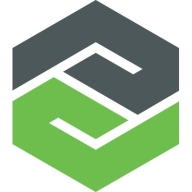

PTC Integrity and Atlassian ALM are competing products in the ALM space. Atlassian ALM appears to have the upper hand with its flexibility and integration capabilities, which may appeal more to teams needing extensive collaborative features.
Features: PTC Integrity supports agile processes, enhances change management, and provides superior configuration management. It effectively supports complex systems with requirements and test management. Atlassian ALM offers agile project management, integration with other Atlassian tools like JIRA and Confluence, and offers cross-functional collaboration through robust API support.
Room for Improvement: PTC Integrity might benefit from quicker deployment options, better integration with non-embedded third-party tools, and more intuitive user interfaces. Atlassian ALM could improve by deepening its configuration management capabilities, offering more enhanced offline functionality, and reducing reliance on third-party add-ons for complete functionality.
Ease of Deployment and Customer Service: PTC Integrity generally requires a longer implementation phase with traditional deployment but offers dedicated support. Atlassian ALM benefits from cloud-based deployment, simplifying maintenance and is supported by an extensive network of online resources and community forums, facilitating faster adoption.
Pricing and ROI: PTC Integrity comes with higher initial setup costs but can provide higher ROI for complex projects. Atlassian ALM offers a more cost-effective entry point, scalable pricing options, and promises quicker ROI due to its adaptability and modern tool integrations.

How to use Atlassian to manage application lifecycle: Atlassian builds software to pull together all the elements of application lifecycle management. Product management, developers, Q/A, dev ops, and business stake holders all have their own ways of interacting with application lifecycle management and Atlassian splits up the process into a few buckets.
1) Collaborate to plan and envision work
Atlassian's Confluence is a collaboration platform for building and driving consensus. Call stake holders in to give approval, comment on, and share pages and integrate with the rest of the development toolchain.
2) Build and track roadmaps
Atlassian's JIRA Software offers incredibly flexible project management with custom workflows, plugins, and high visibility rollups through JIRA Portfolio. Issues can be embedded right in confluence, or be used to kick off new branches in version control. Keep everyone on the same page with project progress.
3) Track and deploy code
Atlassian's Bitbucket is the world's most robust Git solution. The ability to deploy multiple-nodes with failover, global mirroring for super fast clones, and powerful code review control set it apart from competition. Bitbucket also has a mature plugin and hooks system that allows extensions and connection to a suite of CI software.
4) Support and Iterate
Track support requests, bugs, and route users in the right direction with JIRA Service Desk. With the same custom workflow engine as JIRA Software, a tight integration with the rest of the stack, and a knowledge base function make it a powerful addition to the ALM stack.
5) Tie it together
ChatOps helps tie every part of the ALM together. Get stake holders in the same room to manage a project, teams in the same page to manage their work, or plugin automated members to report on CI status, pull requests, page changes in Confluence, or bug reports. Like every piece of Atlassian's ALM there is a mature API for extending plugins and everything can be hosted behind your own firewall.
We monitor all Application Lifecycle Management (ALM) Suites reviews to prevent fraudulent reviews and keep review quality high. We do not post reviews by company employees or direct competitors. We validate each review for authenticity via cross-reference with LinkedIn, and personal follow-up with the reviewer when necessary.